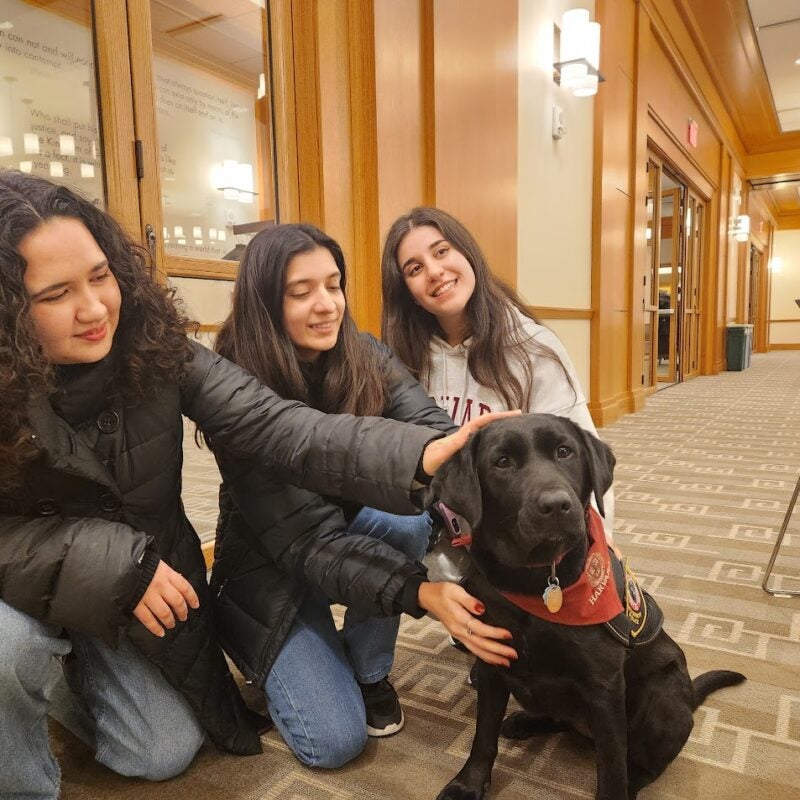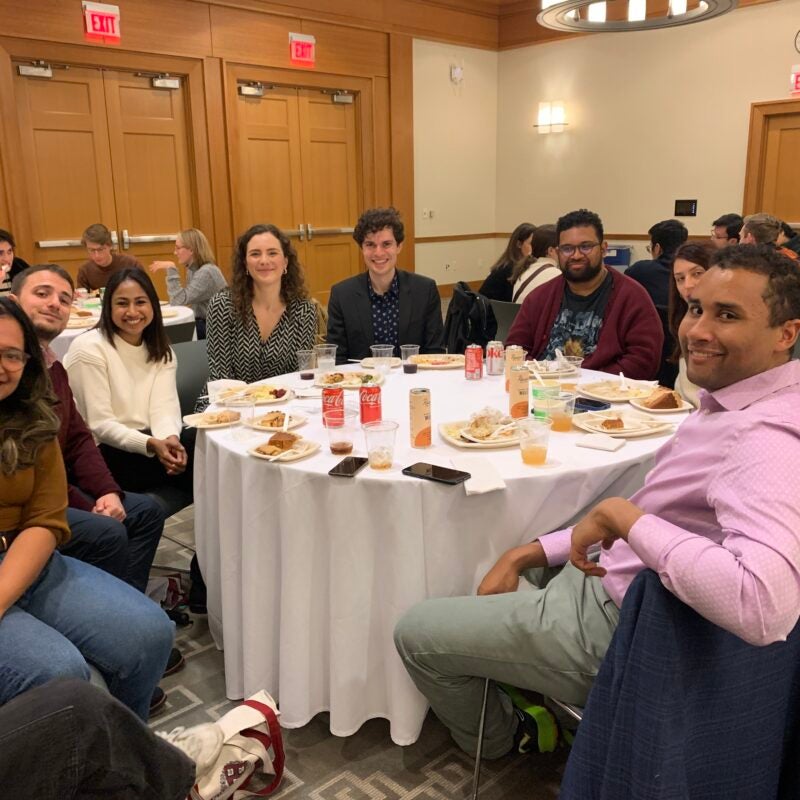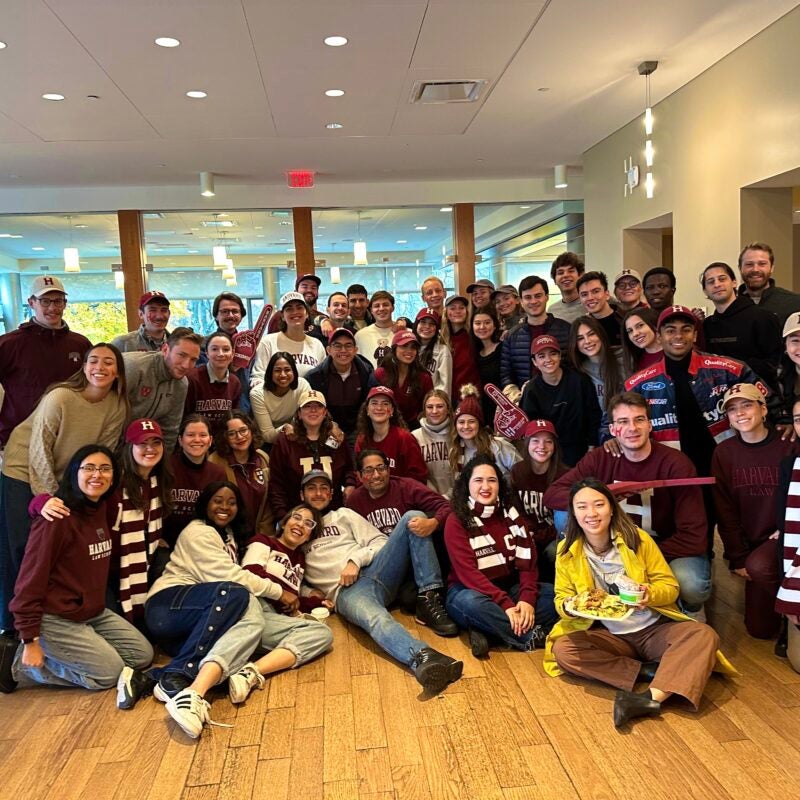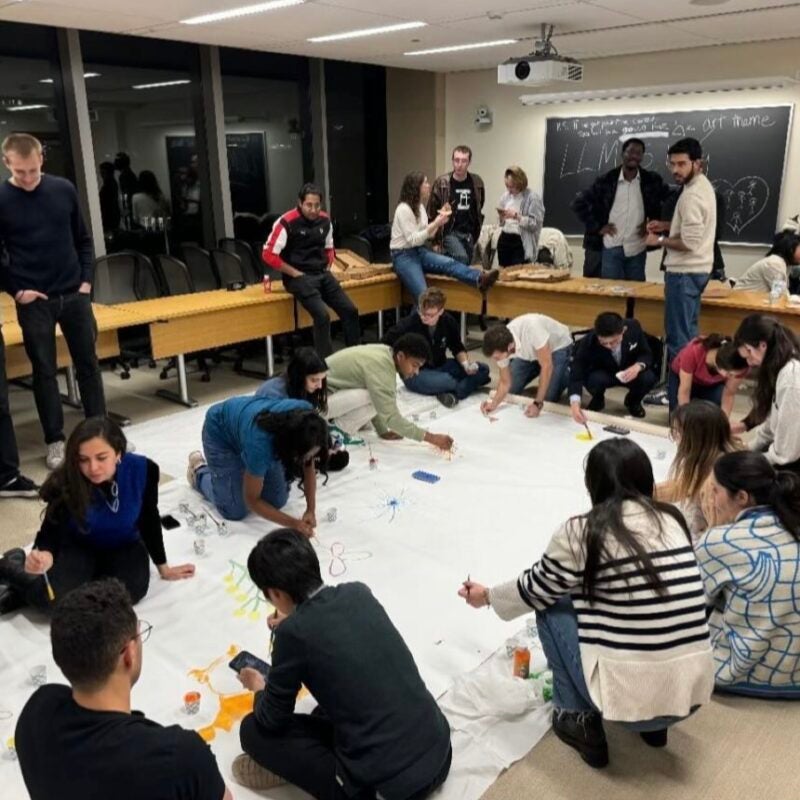Student Profiles
Charlotte Ahabwe – Uganda
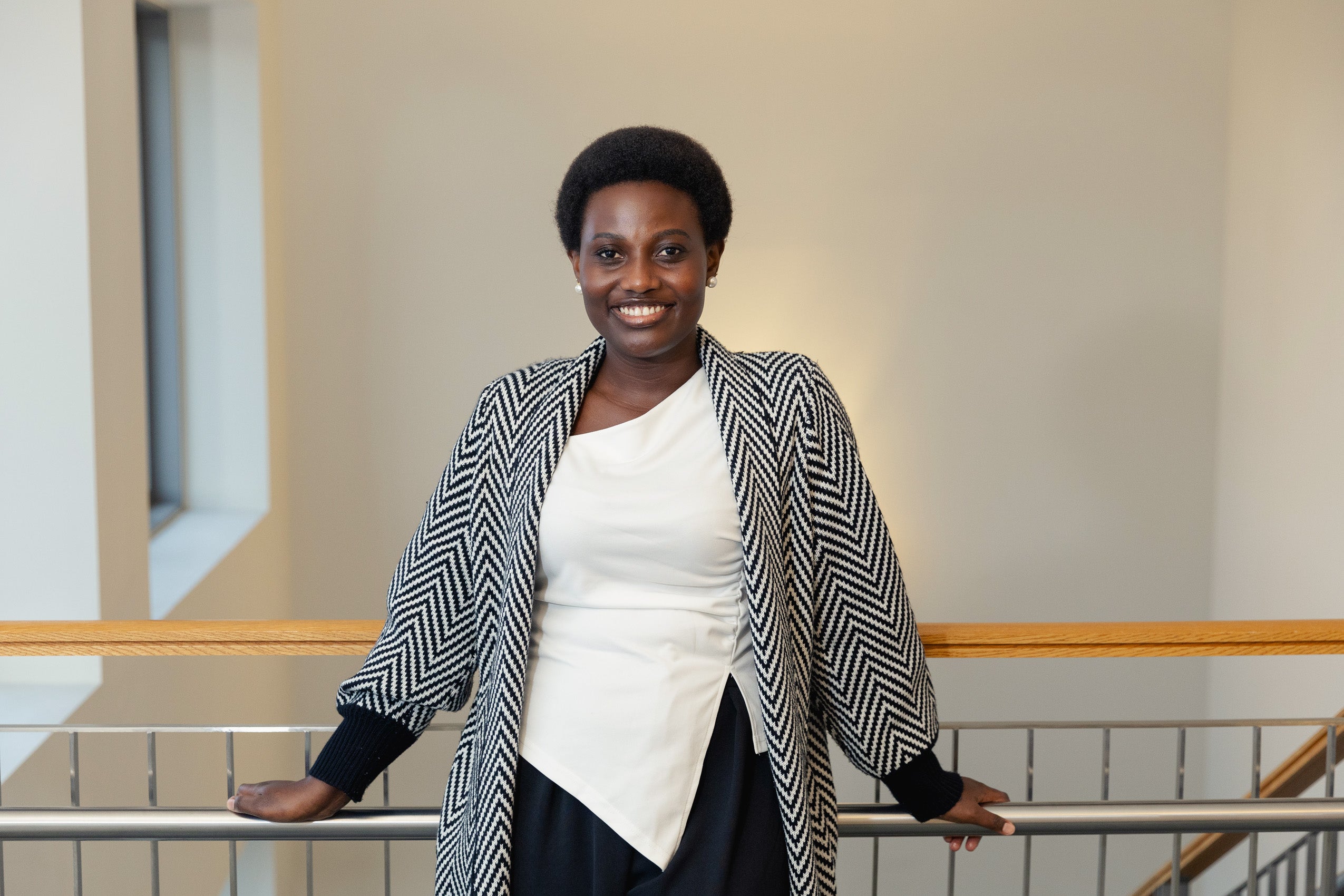
Growing up in Uganda, Charlotte Ahabwe was drawn to law school from a “deep desire to understand what the law was, how it worked, and to see justice being served.” She embraced her studies at Makerere University, where she gravitated towards human rights subjects and legal aid clinics. As her studies progressed, she also developed an interest in the tax system, which was misused or misunderstood and gave rise to societal disparities. Charlotte recalled Uganda’s earlier Graduated Tax System, in place until the mid-2000s, where rudimentary and inequitable enforcement led to fear and mistrust. Although that system had been replaced and modernized by the time she got to law school, Charlotte was compelled to promote a more complete understanding of the tax structure among individuals, businesses, and organizations. She further refined her knowledge through post-graduate tax studies and through her role as a Senior Associate at Kampala Associated Advocates, a top Ugandan law firm. The Harvard LL.M. program was the right next step as Charlotte sought further insights into the policies and practicalities of a fair and efficient tax system. While here at HLS, Charlotte has enjoyed taking a variety of courses in tax and corporate law. She is currently writing a paper on minority shareholder rights, an important topic for Uganda, whose government is a minority shareholder in the country’s oil and gas industry and whose nationals are often minority shareholders in joint ventures. She hopes that her research will prompt conversations on law reform and judicial approaches in this area. After the LL.M., equipped with a new depth of knowledge, Charlotte will continue on to an even deeper tax and corporate practice and will take part in initiatives to “encourage more African women and girls to confidently take up more space.” She also looks forward to part-time teaching in the areas that have fueled her interests.
Chris Evander Co – Philippines
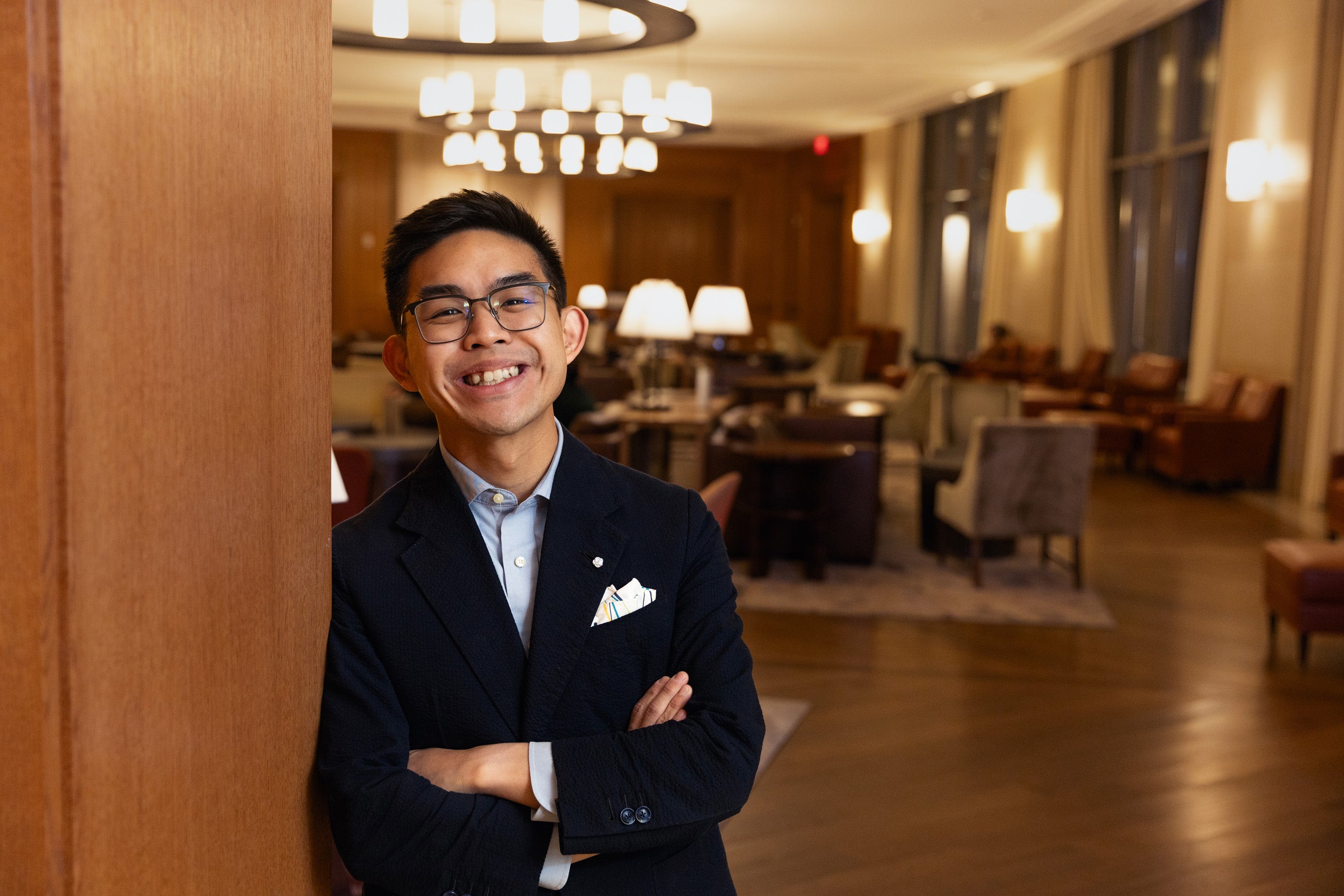
Born and raised in the Philippines, Chris Co attended Ateneo de Manila University, earning his J.D. in 2018. Inspired by the power of the law to create and sustain change, Chris initially joined a boutique law firm specializing in public-private partnerships before working as a clerk at the Supreme Court of the Philippines. He also taught courses in legal writing, ethics, and labor law at his alma mater. Thinking about how best to build upon his experiences, Chris applied to the Harvard LL.M. due to its multidisciplinary course offerings in the fields of law and development, constitutional law, and more. Since beginning the program, he says he has broadened his perspective beyond what he could have imagined. For example, he notes how his study of comparative constitutional law — also the subject of his LL.M. Paper with Professor Vicki Jackson has equipped him with an indispensable approach in his onward work. Already he feels this has made him a more mature practitioner and continuing student of the law. His experiences, of course, are not limited to the classroom. A self-described chef and foodie, Chris has enjoyed exploring local restaurants and cooking for new friends, sharing with them the cuisine of his culture. After all, he says, cooking and practicing law share some important commonalities: both draw upon tradition and rely on tested elements, but can benefit from fresh, new perspectives. After the LL.M. year Chris looks forward to incorporating the lessons learned at Harvard into his roles as a clerk, as a teacher, and beyond. In particular, he plans to use the Harvard styles of Socratic method and of multidisciplinary study in his teaching as he has found these techniques promote an engaging way to learn and find solutions. Even as he savors his last term at Harvard, Chris looks forward to enriching himself in his courses and making even more lasting – and appetizing! – memories with his cohort.
Manisha Shanthini Dissanayake – Sri Lanka
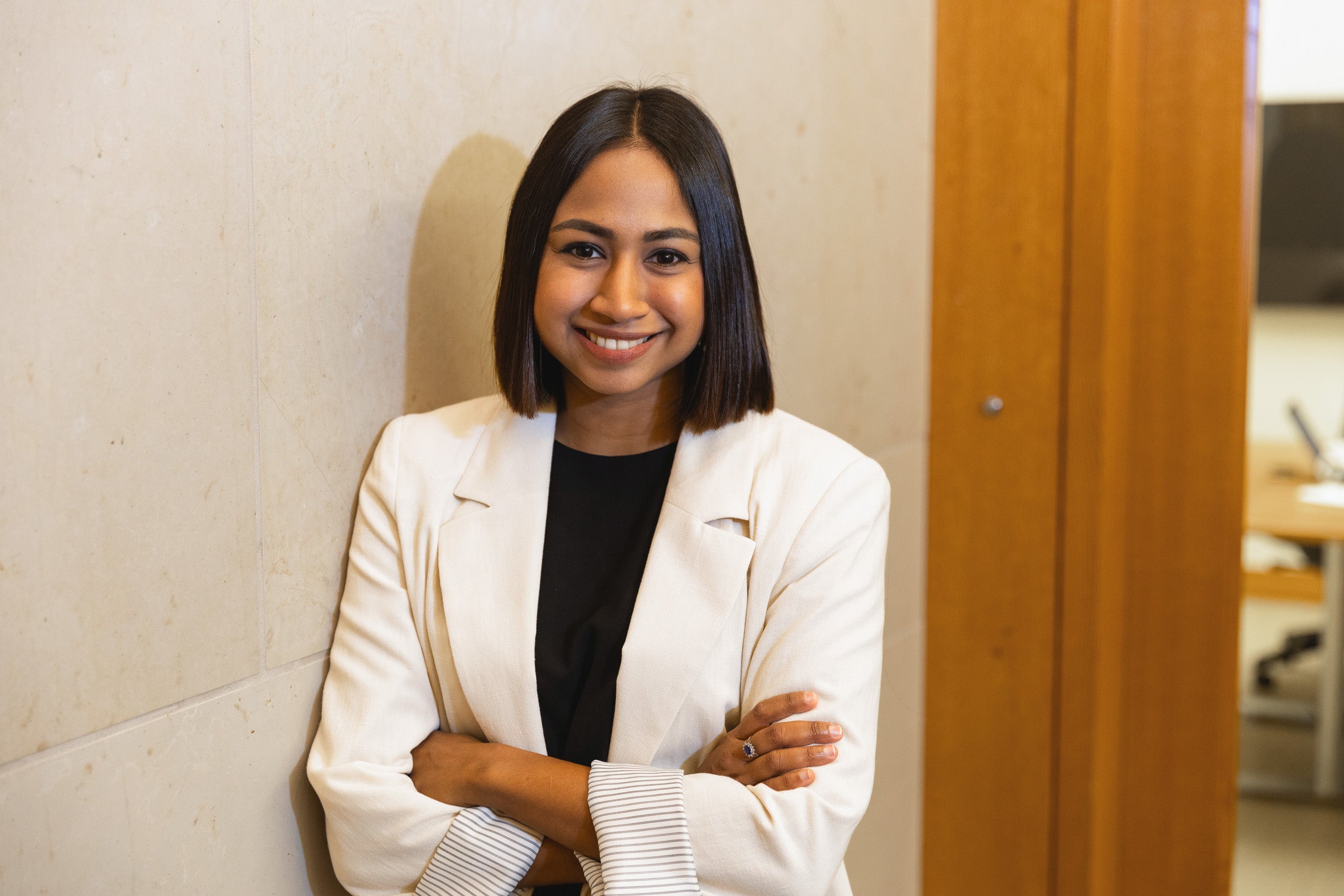
Having grown up in Sri Lanka amidst a backdrop of political turmoil, Manisha Dissanayake formed a passion for human rights and legal advocacy, which instilled a desire from an early age to pursue a career in litigation. She studied law at the London School of Economics and Political Science, where she was part of the university’s debate and moot teams, and focused on human rights and constitutional law. Most recently, Manisha served as counsel in the Court of Appeal and Supreme Court of Sri Lanka, working on human rights and constitutional law litigation. She also remained close to her grassroots concerns, having founded and continuing to oversee The Arka Initiative, an NGO dedicated to addressing sexual health and reproductive rights issues in Sri Lanka. Manisha focused on refining her knowledge and skillset, leading her to complete a Master’s Degree in Human Rights and Democratization at the University of Colombo, and then to apply to the Harvard LL.M. program. At Harvard, Manisha says she seeks to better understand and grapple with the increasing complexities of global human rights issues. She reports being completely invigorated by the LL.M. year, during which she has been fine-tuning the tools needed to approach human rights issues with an innovated and elevated perspective, engaging closely with and drawing inspiration from the HLS community. She looks forward to her continued study through the spring term, as well as to enrolling in the International Human Rights Clinic, and continuing her work with HLS Advocates for Human Rights and the Harvard Human Rights Journal.
Paula Ibargüen Ponce – Guatemala
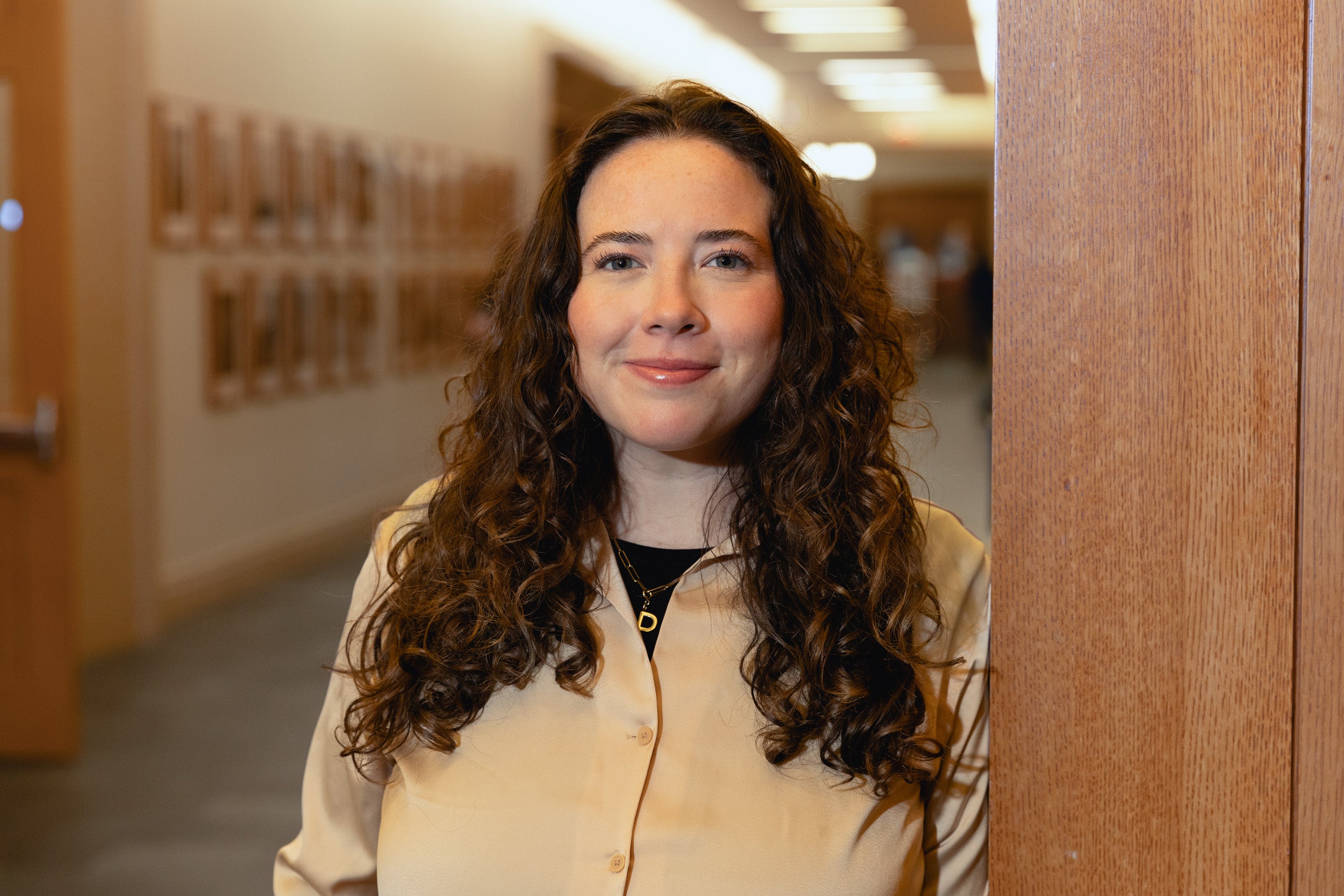
Raised by two attorneys in her native Guatemala, Paula Ibargüen Ponce always felt drawn to the law. A skilled speaker with an early passion for fighting injustice, Paula joined a future-focused national discussion group at age eight and participated in the People-to-People Student Ambassador Program at age 13. It seemed only natural that she would then attend Francisco Marroquín University in Guatemala City, where she graduated first in her class with a Bachelor of Legal and Social Sciences, Attorney at Law and Public Notary. Thereafter, Paula began her career in the Guatemala City office of Aguilar Castillo Love, the renowned Latin-American regional firm with a history rooted in the Harvard LL.M. program. It was Paula’s mentor there, Juan Carlos Castillo LL.M. ‘91, who encouraged her to apply to Harvard, which she feels was the best decision she has ever made. At HLS, Paula has already formed valuable connections with her fellow students and professors, who motivate her to be the best version of herself and have encouraged her enthusiasm for class participation and teaching. Paula points to the HLS emphasis on Socratic discussion, although daunting at first, for making her a stronger and more efficient reader, a skill she plans to bring forward into her next professional steps. Paula has also enjoyed taking classes such as international arbitration, which hit a bit closer to home given her prior experience as a Nomination Commission Member for the ICC Guatemalan National Committee on Arbitration. After graduating from HLS, Paula is excited to return to practice with a fresh comparative approach, drawing on both her prior experience in arbitration in Guatemala, as well as the invaluable knowledge she has gained through her academic, professional, and personal growth at HLS. She is determined to keep speaking up.
François Lalande – Canada
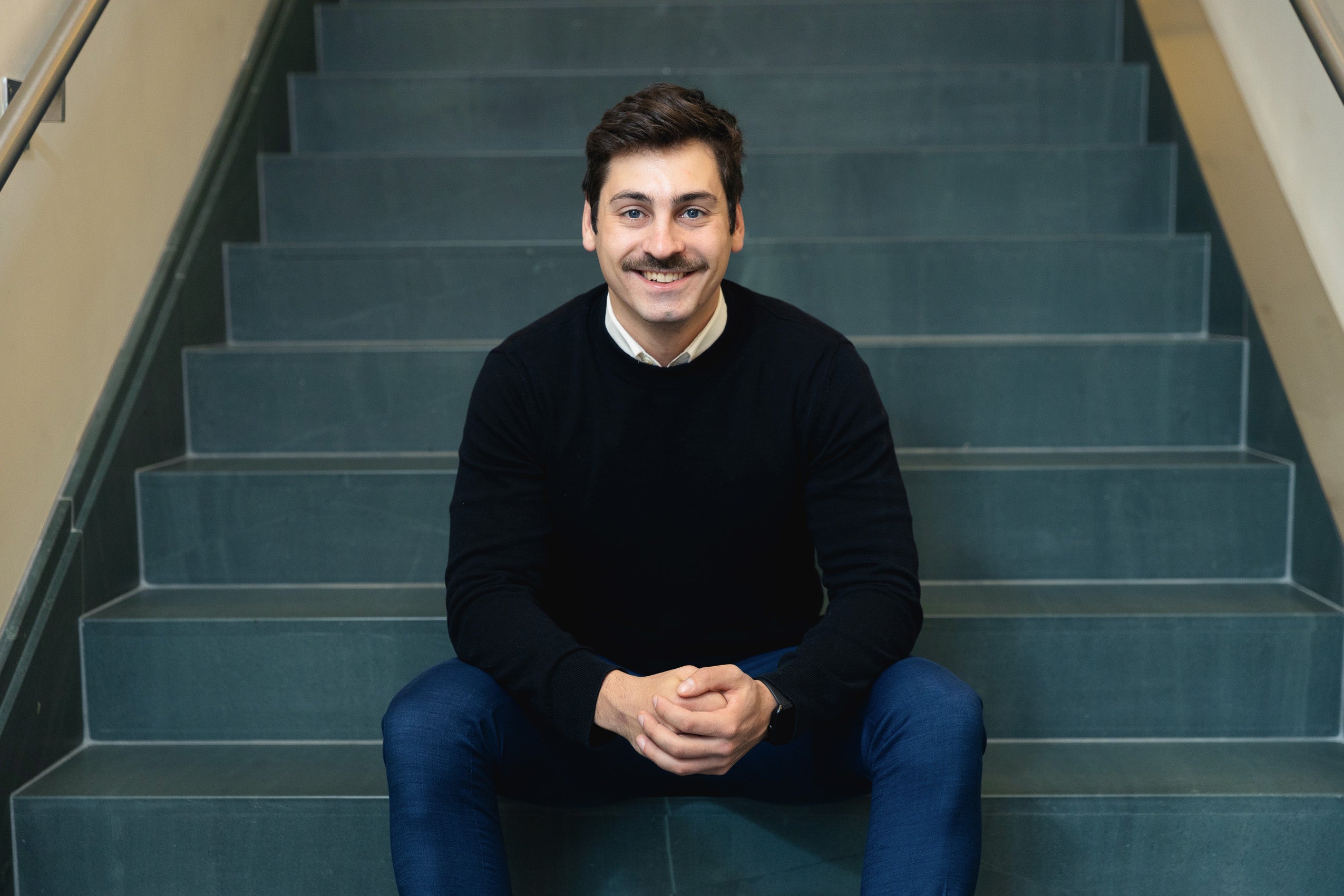
Born and raised in Québec, François Lalande developed an early passion for politics and sociology, which informed his multiple pursuits. At 17, he joined the Canadian Armed Forces and, during the COVID-19 pandemic, he was deployed to support vulnerable populations at care homes across Canada. That experience left a lasting impression on François, as he witnessed firsthand what he describes as the “real-life consequences of poor public policy decisions.” He also earned his commercial pilot’s license and worked as a wildfire detection pilot, experiencing first-hand the impact of preparation and agile decision making. François was thus motivated to study law, viewing it as “the language by which states regulate societies.” As a student at the Université de Montréal, François deepened his understanding of law as a vehicle for social change and discovered a passion for legal writing. He remarks on how his pursuits of the law and of aviation both instilled in him the importance of expertise and planning. Seeking to further refine his analytical skills, François looked to HLS for its dynamic intellectual environment. Here, he finds himself surrounded by thoughtful classmates and teachers who challenge his preconceptions on law and politics. He is also developing an even more well-rounded perspective through classes taught by inspirational faculty like Justice Rosalie Abella, a former Canadian Supreme Court justice and one of his personal heroes. Immersed in the supportive HLS community, he enjoys being part of student organizations like the Armed Forces Association and the Jiu Jitsu Club. François hopes to clerk for a Federal Court in Canada as he carries his HLS connections with him in seeking ways to drive meaningful change.
Jacquelene Wangui Mwangi – Kenya
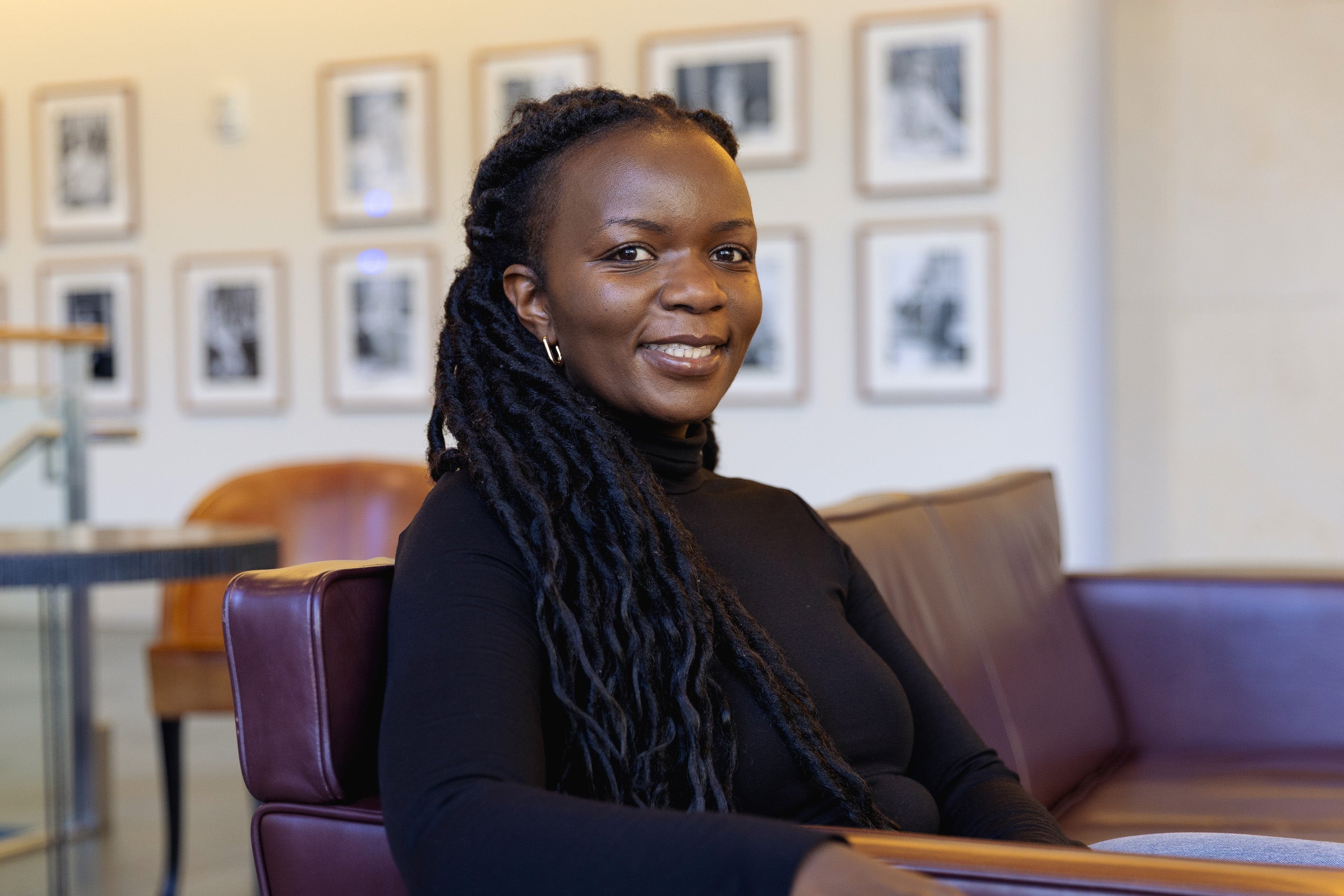
Originally, Jackie Mwangi went to law school based on her brother’s advice that she’d gain a skill that could be used anywhere. She enrolled in the law faculty at Kenyatta University and then at Kenya School of Law, growing fascinated by the prospect of nurturing creativity through intellectual property (IP) law. After graduation, Jackie joined a research project exploring the ways in which innovators in Kenya do and do not use the IP system. Through that research and through work at a law firm, she found that the system seemed to exclude local innovators and wondered how this could be addressed. So motivated, Jackie applied to the Harvard LL.M. program to delve further into the question of what this all meant for fledgling innovation ecosystems. At Harvard, Jackie found inspiration from Professor Ruth Okediji and from the late HKS Professor Calestous Juma, both of whom shared her concern over the structural impediments to technology and development in the Global South. Gaining momentum along the way, Jackie’s further inquiries led her to the S.J.D. program, where she has been uncovering connections between law and technology and global inequality with guidance from Professor Okediji, Professor Yochai Benkler, and Professor Emeritus Duncan Kennedy. Outside of her rigorous studies and the spin classes that keep her grounded, Jackie has continued to flourish as a board member of the Calestous Juma Legacy Foundation, as a Teaching Fellow at Harvard College, and as an LL.M. Advisor. She is particularly impressed by the students and advisees over the years who have stayed in touch and built upon their conversations with her. These collaborations help Jackie stay energized and remind her of “how teachers can make a positive difference.” Years later, her brother’s advice about law school rings true, albeit not in the way he thought: law is a crucial tool for ordering society towards equal or unequal outcomes, and Jackie has found researching this dynamic very rewarding.
Alumni Spotlight
Collaborating on Climate Change
Katalin Sulyok LL.M. ’16 and Jenny Sandvig LL.M. ’18 share a focus on climate change and a deep appreciation for their time at HLS
In April 2024, the European Court of Human Rights (ECHR) rendered a historic judgment in Verein KlimaSeniorinnen Schweiz et al. v. Switzerland (KlimaSeniorinnen), ruling in favor of a group of elderly women in Switzerland on issues of climate-based health threats. The decision is widely recognized as the first time an international court has ruled that governments must act, under human rights law, to meet climate goals. “It’s a judgment that I think will stand the test of time,” says Jenny Sandvig LL.M. ‘18, a partner at Simonsen Vogt Wiig in Norway, who argued the case before the Court’s Grand Chamber on behalf of the European Network of National Human Rights Institutions (ENNHRI), the only third-party intervenor granted the opportunity to appear before the Court to present their arguments orally.
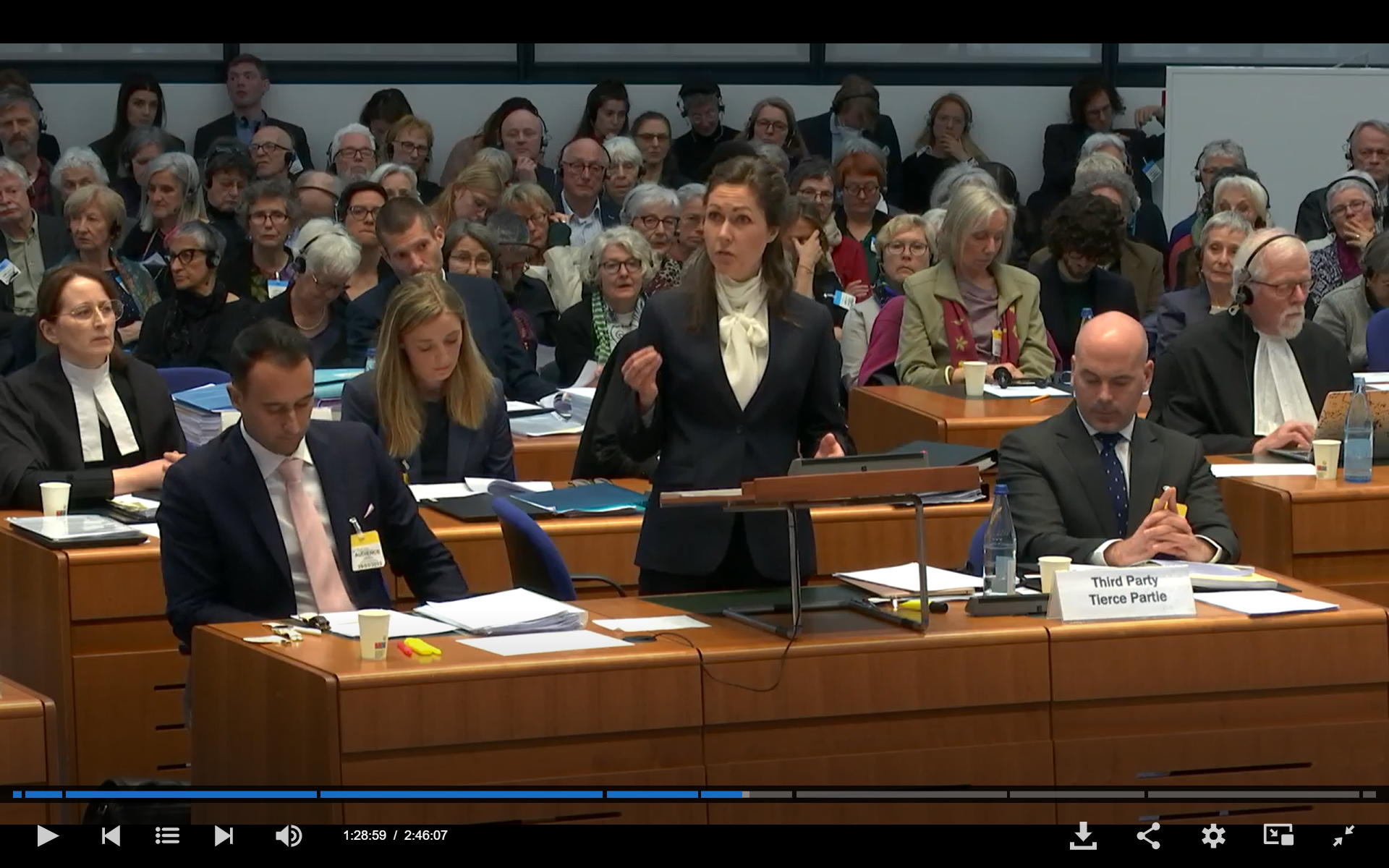
The case took as its starting point the fact that older women face a greater risk of premature death from heat waves resulting from global warming, and argued that the Swiss government had not done enough to meet its carbon emission reduction goals and so must address the deficit. Building on similar decisions by the Dutch Supreme Court and the German Federal Constitutional Court, “what the ECHR needed to do was to confirm that the rights to life and to physical integrity apply to climate harm, and that states are under a positive obligation to diligently reduce that harm,” Jenny explains. The strength of the case would require deep technical insight in addition to legal expertise.
She identified a ready collaborator in Katalin Sulyok LL.M. ‘16, an associate professor of environmental and international law at Eötvös Loránd Law Schol (ELTE) in Budapest and chair of the Climate Crisis and Human Rights Working Group at ENNHRI. Although they did not attend Harvard at the same time, their connection was forged by the Graduate Program’s long-serving Writing and Academic Preceptor, Dr. Jane Fair Bestor. Advising Jenny on her writing project, Jane recommended that she read Katalin’s LL.M. paper on causation in toxic exposure cases.
After Katalin published her book, Science and Judicial Reasoning, with the Cambridge University Press, Jenny reached out to her, and they became natural collaborators on the KlimaSeniorinnen case. Based on their shared HLS experiences, “We trusted each other instantly, and knew where the other was coming from,” Katalin recalls. “My contribution was related to recommending how scientific evidence could be raised before the Court,” she explains. “It was a very sophisticated judgment with a lot of technical detail. It’s a major accomplishment that the Court really rolled its sleeves up and engaged with the very complex question of how states can fight climate change.”
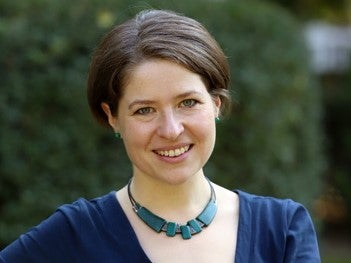
These complexities made sense to Katalin, who first studied biology, then law, at ELTE; her goal in pursuing an LL.M., she explains, was to study the intersection of these topics. “Harvard stands out as the place that really delivers on the promise of interdisciplinary training,” she says. Katalin fully embraced this promise, taking courses on natural resources, climate change, and science and technology at MIT, the Harvard School of Engineering, and the Harvard Kennedy School. She recalls these courses being instrumental in shaping her subsequent work and research relating to climate change. At HLS, she was particularly inspired by Professor Richard Lazarus’s course on The Supreme Court and Environmental Law, recalling their study of the historic Massachusetts v. Environmental Protection Agency case in which the state argued for regulation of greenhouse gas emissions. Through their review, which included hearing from the counsel who represented Massachusetts before the Supreme Court, she says she “became more hopeful that it was possible to reach breakthroughs through laws and litigation with respect to the climate crisis, even against all the odds.”
Katalin also wrote her LL.M. Long Paper — which formed the initial impetus for her connection to Jenny and which was awarded the Irving Oberman Memorial Writing Prize — under Professor Lazarus’s supervision. Considering the accumulation of research for her paper and then her Ph.D. dissertation, “it was clear that in environmental pollution cases, the European Court of Human Rights has tried to distance its reasoning and inquiry from scientific evidence,” deciding the merits of human rights complaints without going into depth on evidence as to the extent pollution caused health injuries for the applicants.
“These insights informed our strategy and approach to the KlimaSeniorinnen case as well,” Katalin explains. Although the ECHR did not hold an expert hearing with climate scientists as the applicants requested, the submission’s reliance on science from the UN’s Intergovernmental Panel on Climate Change features prominently in the judgment. Jenny and Katalin also centered their argument on the 1.5 Celsius (1.5°C) global warming threshold, a goal set under the Paris Agreement for limiting the average global temperature. “We asked the Court to feature 1.5°C as one of the core requirements of effective domestic climate action,” Katalin says. “The Court clearly acknowledged its importance in the judgment, which provides an external benchmark against which domestic actions can be measured.”
The judgment also fortified Jenny’s onward momentum. Before undertaking her LL.M., Jenny worked in the office of Norway’s Attorney General, but in Cambridge she found herself changing focus. “When I came to HLS, I had a one-year-old daughter,” she says. ”There was a growing concern over what we were leaving for our children, and it changed my perspective.” A course she took on climate law with Professor Jody Freeman LL.M. ’91 S.J.D. ’95 turned out to be foundational. After a class session on climate science and the brutal realities involved, she recalls that “it became very clear to me that I wanted to put my energy into this field.”
After her LL.M., Jenny returned to the AG’s office before being admitted to practice before Norway’s Supreme Court. She began working with the Norwegian National Human Rights Institution, where she was involved in submitting amicus curiae briefs in pending climate litigation and in cases before the ECHR. Now in private practice, she has represented entities such as Greenpeace Nordic, the environmental organization Nature and Youth, and the World Wildlife Fund Norway.
In one of Jenny’s recent cases, the Oslo District Court found that the mandatory environmental impact assessment undertaken for proposed petroleum production in the North Sea should have considered not just emissions resulting from extraction but all climate impacts. This includes the emissions that would occur later from combustion of the oil and gas that is produced — an approach, Jenny explains, that ensures the public is not kept in the dark about the potentially devastating effects of these emissions. That decision has had a broader effect as well. In June, the Supreme Court of the United Kingdom cited the reasoning in the Oslo case as persuasive, and just recently a decision by the Court of Session in Edinburgh held that decisions to permit the development of two other oil and gas fields in the North Sea were unlawful, based on the same argument. These significant results, she observes, demonstrate that “certain judgments, based on logic and consistent with science, can travel across borders.”
It is those shared perspectives across borders and class years that make the unique and successful collaborations — such as that between Jenny and Katalin — possible among the Harvard LL.M. alumni network. “I would never have thought of doing any of the things I do now without Harvard Law School, because of the knowledge that I gained there, but also from the agency that the law school teaches. You see what is possible,” Jenny says.
Katalin agrees. “It was transformational for me, too. It allowed me to look at law from another vantage point — to see how law is a tool for change.”
An Astonishing Year and an Opened Door
Apostolos Gkoutzinis LL.M. ’05 reflects on the knowledge and new opportunities gained from his studies at HLS
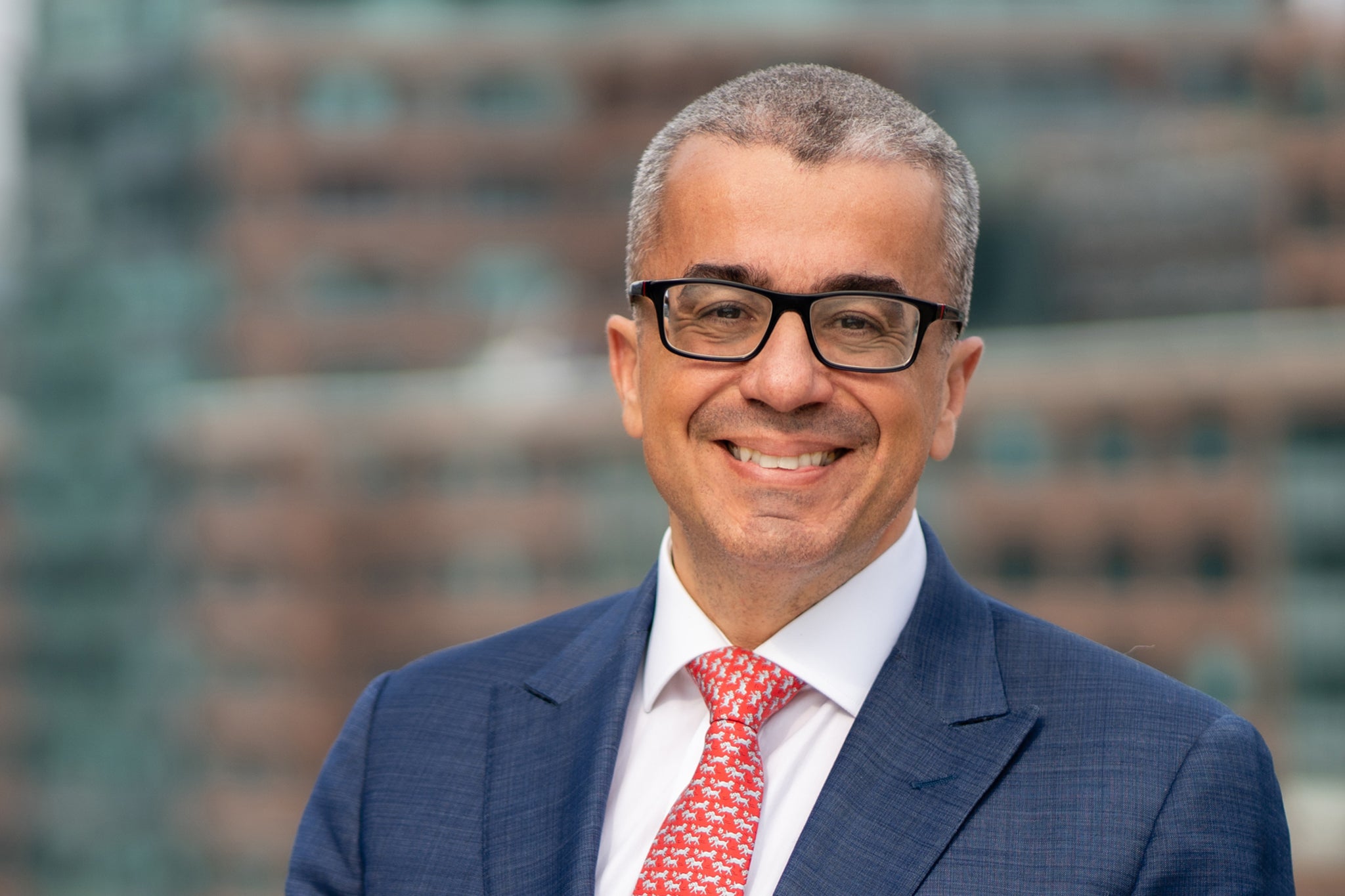
This past September, Apostolos Gkoutzinis LL.M. ’05 was one of the many enthusiastic LL.M. alumni and guests from around the world who gathered at the law school to celebrate the 100th anniversary of the LL.M. program. A partner in the European Leveraged Finance/Capital Markets group in Milbank LLP’s London office, he spoke on the panel on Corporate Law and attended with his two sons, noting that “completing the LL.M. program at Harvard opened enormous opportunities for the future. Returning to campus and reconnecting with old friends has just been wonderful.”
Although it all happened some 20 years ago, he can still recall “what I wore on the day I got my [admission] letter, what I had for breakfast, and what time it was.” Looking back, it was an especially momentous occasion for him, he explains, because his studies at Harvard Law School would open doors that he thought were closed to him.
Apostolos was born in northern Greece, to a family of modest means. “I had no natural connections to the law; no one in my family was a lawyer.” Thinking about areas where he might be able to gain skills and make an impact, he enrolled at the Aristotle University of Thessaloniki, near his home town, graduating first in his class and earning a scholarship to study at the University of London. After earning both a master’s degree and a Ph.D. there, in the subject of Internet banking and finance, he joined the faculty as an assistant professor. He was energized by the continuity of sharing and imparting knowledge, but realized that he was seeking a different kind of challenge.
Intrigued by the possibilities before him, he wondered about a career in finance and realized that further training might help him clarify his interests. With the encouragement of Rosa Lastra LL.M. ’91, his professor and mentor, Apostolos decided to apply to the LL.M. program at HLS. Rosa also drew his attention to the expertise of HLS professors Hal Scott and Howell Jackson, who at the time directed an international finance concentration, and recommended that he take courses with them. Following all of this advice, Apostolos took his next steps toward what he hoped would be a transformative opportunity.
Apostolos says that the breadth of knowledge he gained from his studies at HLS was astounding to him. In courses on the regulation of financial institutions with Professor Jackson and principles of international finance with Professor Scott, he expanded his understanding of international financial law, outside of the European context with which he was familiar, and took a “brilliant” course on private equity at the Harvard Business School. In fact, he still refers frequently to his notes from HLS Professor Reinier Kraakman’s course on corporate finance. In this class, he recalls looking at a hypothetical firm, talking about gross margins and operating profit, calculating cash flows, and valuing the company and its liquidity. This work, he says, “was a complete revelation.” For the first time, he approached the subject not just as a lawyer, but as a finance professional — a skill which has been invaluable in his work.
When it came time to write his LL.M. paper, Apostolos focused on international regulatory convergence and the elimination of barriers to international financial integration. With the support, once again, of Professors Scott and Jackson, he published his paper in The International Lawyer, the periodical of the American Bar Association’s international law section, and was invited to present the paper at a meeting of global financial lawyers organized by the International Monetary Fund. After the event, he recalls, he felt a deep sense of accomplishment and “ready to do this work at the highest level.”
He is certain, he says, that his Harvard LL.M. did in fact open meaningful new doors for him. After graduation, he applied to Wall Street firms, received several offers, and accepted a position at Shearman & Sterling, first in New York, then in London, where he developed a European practice. He joined Milbank, where he helps companies raise capital in international markets, in 2018. He says that while his mission seems straightforward, his projects are rich with complexity, in balancing everything from business cultures and regulatory environments to motives and emotions. In this way, each day is a learning experience as ventures play out on the global stage. He is well-equipped for that setting, he adds, thanks to the Harvard LL.M. program.
Apostolos has remained connected with the HLS community, staying in touch with friends from his LL.M. year and collaborating professionally with many other Graduate Program alumni. He has also been involved with Milbank’s Executive Education Program, which provides courses at HLS and at HBS for the firm’s professionals. And coming full circle, he has drawn on his success in order to help others, endowing a scholarship in his father’s name, to support Greek lawyers of limited means.
His advice to current students, and alumni who are just starting out, reflects his own transformative experience at HLS. “Everyone who comes to the LL.M. program is just so blessed. It’s an environment where knowledge is abundant, and shared widely, and available for people to just go in and absorb it. It’s an unlimited universe, and they should do everything they can to take advantage of that. Of course, they should go home at night, and rest a little bit, and then the next day, onwards and upwards.”
On Campus
-
![]()
Bonding with Sasha, the Harvard Community Engagement Dog/ambassador extraordinaire
-
![]()
A pre-Thanksgiving dinner, with all the trimmings
-
![]()
LL.M. Class of 2025 – school spirit edition
-
![]()
LL.M. ’25 group mural collaboration
